China's Confucianist path to soft power
Pang Ruizhi argues that apart from making reforms to its political and government systems, China needs to find strength in its good cultures and traditions. He feels that a revival and remake of Confucianism - a key tenet of Chinese philosophy and thoughts - will be a key booster shot to building a new Chinese culture and strengthen China's soft power on the international stage.
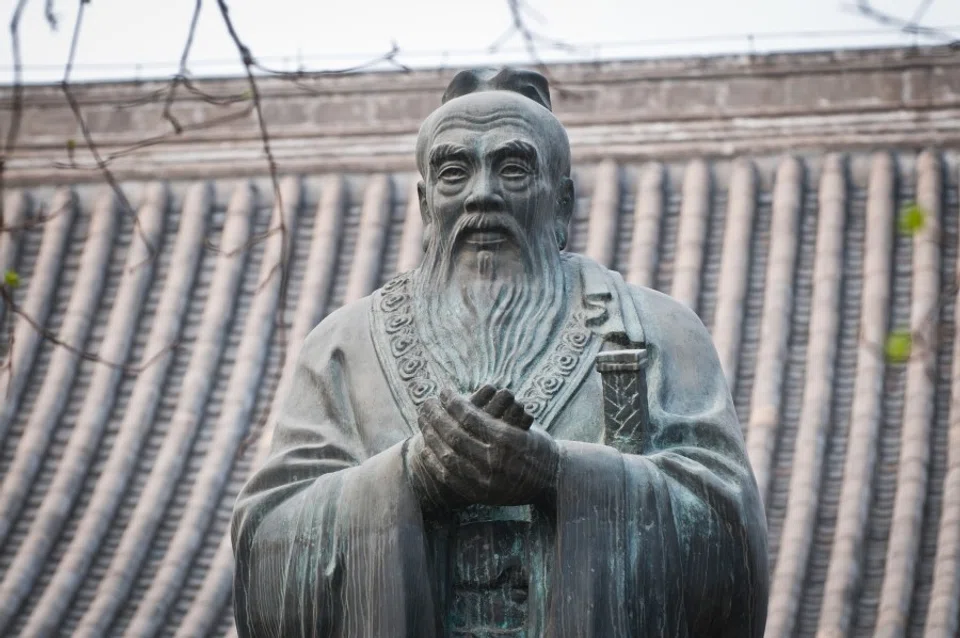
Recently, Portland Communications published Soft Power 30: A Global Ranking of Soft Power 2019. This report produced in partnership with the USC Centre on Public Diplomacy measures soft power resources of specific countries with objective data based on six sub-indices, namely: Culture, Education, Engagement (i.e., international engagement), Enterprise, Government and Digital (i.e., the support, use and connectivity of digital technology) and subjective data.
According to this document, China is ranked 27th among the 30 countries in the world with the greatest soft power, far behind France, the UK, Germany, the US and Japan, all of which are among the top ten. According to U.S. News, China is ranked 19th in the world in terms of cultural influence, while France, USA, Britain and Japan are, again, among the top ten (Germany is ranked 11th).
In the Corruption Perceptions Index (CPI) published by Transparency International, mainland China is ranked 87th in a list of 180 countries and territories. Here, the top 25 include countries like Germany, Britain, Japan, France and the US.
More critically, in the various indices for soft power and cultural influence, China consistently falls behind the Asian countries Japan, South Korea and Singapore.
Standing in sharp contrast to these numbers are rankings that reflect China's material strength. In the existing indices for overall national power (Composite Index of National Capability (CINC), Comprehensive National Power (CNP), U.S. News power rankings etc.), China's ranking seldom falls below the top three places.
China's soft power Achilles heel
The above data show that soft power and cultural influence have become the Achilles heel of Chinese national power, the bottleneck issue that is holding back the Asian giant's international influence. This is highly at odds with the long history of the Chinese humanities, as well as how China had traditionally been hailed as "the nation of courtesy and propriety". More critically, in the various indices for soft power and cultural influence, China consistently falls behind the Asian countries Japan, South Korea and Singapore.
While William Wohlforth has suggested that the symmetrical concentration of resources has a direct correlation to international stability, the same can hardly be said when it comes to the asymmetric concentration of power among different countries in a multipolar world. When Country X is stronger in terms of a certain power resource and Country Y has advantage in another, the power difference between both countries is not so clear-cut, and thus disputes over international standing would likely occur. Such disputes cease to be if one country holds the absolute advantage in every power resource. This rule is not restricted to material power.
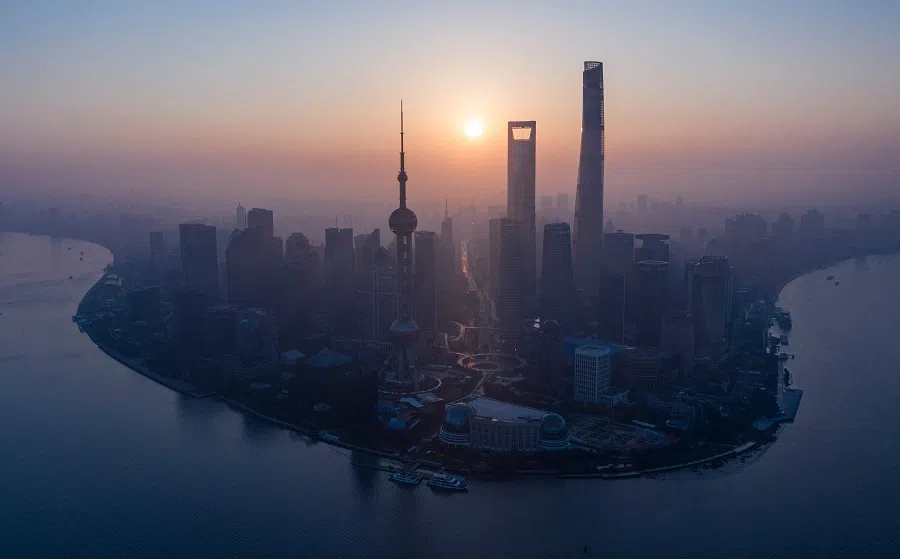
Currently, China is the centre of material strength (hard power) in East Asia, while Japan - even though it falls slightly behind in material strength - is superior to China in terms of soft power and cultural influence. Both South Korea and Singapore are also not inferior to China on these fronts. Thus, China's leadership in East Asia cannot possibly be recognised by other countries in the region. Lagging behind in soft power and cultural clout not only affects China's international status, but is also a serious hindrance to the exercise of Chinese influence in East Asia, not to mention the establishment of any China-led East Asian security strategy or cooperation mechanism.
That the would-be superpower comes up short in the various soft power indices provides China's critics, rivals and enemies with ample ammunition. They leverage on the fact to stigmatise and demonise China. Trampling on human rights, being interested only in profit, not grounded in any faith, being morally degenerate, etc. - all these have come to be part of what China and the Chinese stand for in the minds of many people. These impressions negatively impact on the ability of the Asian giant to expand its international clout.
Reforms needed
In order to improve this situation, China needs to deepen the reforms of its political system, transform the functions of government, and modernise its governance systems and capabilities. At the same time, the country needs to strongly promote the development of its cultural industries, reinvigorate the best of traditional culture and beliefs, so as to offer to the world a different option in the way of Chinese values, wisdom and cultural beliefs.
Ever since it initiated its economic reform, despite the turmoil and major difficulties it confronted and is confronting, China has achieved much and made major progress in its political and governance reforms. In contrast, development in the cultural front has yet to yield visible results. The withering of Chinese culture has been going on for almost 400 years. Despite signs of resurgence in the first half of the 20th century, the force of certain historical trends ultimately holds sway.
Historians tell us that after the Manchu armies broke through into the heart of China in the mid-17th century, Chinese cultural traditions - insofar as they expressed cultural self-awareness and liberty - were brutally suppressed by the Manchu regime for the sake of protecting its narrowly envisioned tribal rule. This was the beginning of China's cultural debilitation. The merciless clampdown on the self-awareness, liberty and critical thinking inherent in Chinese culture continued throughout the Qing dynasty.
After the Manchu government was overthrown, the New Culture Movement and the May Fourth Movement finally propelled the development of Chinese society and culture forward with the reception of progressive revolutionary thought along with the ideas of democracy and science.
The general populace remains widely sceptical about traditional culture. Chinese culture has not been given a new breath of life. Instead, the momentum of its decline continues unabated.
Unfortunately, these movements also led to the continued presence of "take-ism" (a concept introduced by writer Lu Xun in the 1930s of selectively imbibing influences from the West) and historical nihilism in China throughout the better part of the 20th century. These trends manifested in the form of the proposed replacement of Chinese characters by phonemic orthography, ideas associated with the controversial CCTV documentary River Elegy, or the extreme leftism which culminated in smashing the "Four Olds (old customs, culture, habits and ideas)". The two trends might seem as different from each other as day and night are, but they were truly birds of the same feather as they both degraded and tore down traditional Chinese culture and beliefs.
The proponents of such ways of thinking assumed that traditional Chinese culture was the chief culprit behind China's backwardness and battered state in the modern era. With the intellectual and cultural atmosphere being as such, even though there had been great masters of sinology in the early 20th century, their influence was largely confined to academia. The general populace remains widely sceptical about traditional culture. Chinese culture has not been given a new breath of life. Instead, the momentum of its decline continues unabated.
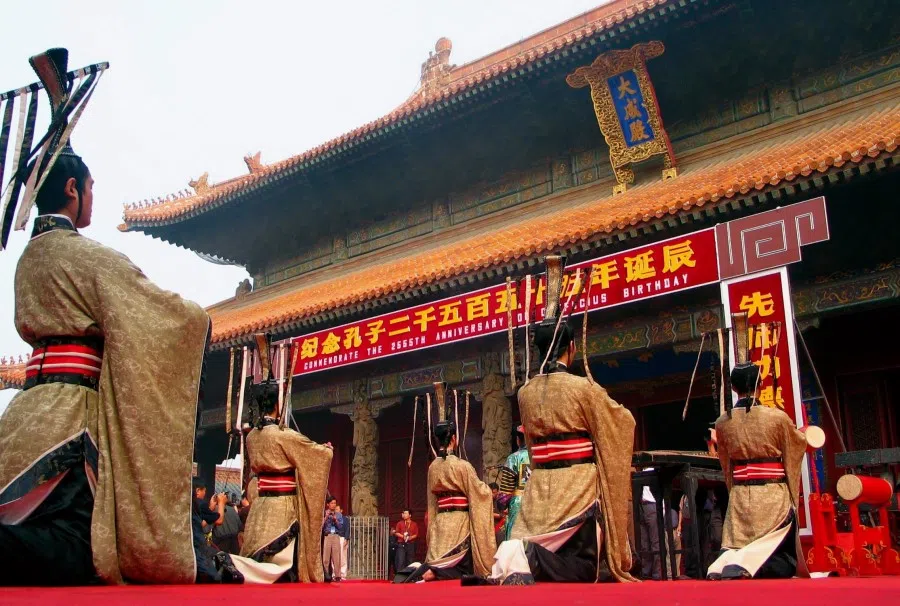
Confucianism's potential
If this decline is not stopped as soon as possible, if our indigenous culture and beliefs are allowed to shrivel, the inevitable would befall the mainstream beliefs and values that had been established through the choices and comparisons made historically (as well as through the trials of revolution, nation-building and reforms) by individuals. This will pose a serious hindrance to China's soft power and cultural influence and would also have a negative impact on the diversity of human civilisations and cultures. Putting a halt to the decline and reviving the best of traditional Chinese culture and beliefs (of which Confucian thought is representative) have become an urgent task for enhancing China's soft power and expanding its cultural influence.
Thanks to its universal applicability, inclusiveness, propensity for critical thinking and impetus to keep advancing with the times, Confucian thought had always been the mainstream of ancient Chinese culture and beliefs. The revival of traditional culture and beliefs means that Confucian thought itself has to be given a reanimating jolt. The question for China now is not whether we should revive Confucian thought, but how we should do it. The Chinese government must create the conditions and environment conducive to the revival of Confucian thought and beliefs, and actively impel such a revival.
Culture is the soul of a nation and a people. Where culture does not flourish, there can be no elevation of soft power and cultural influence. In the ongoing process of its modernisation, China must take its own traditional culture through a systematic self-renewal and reinterpretation - in other words, creative conversion and innovative development. Such self-renewal, reinterpretation, conversion and innovation constitute a process of cultural revival - or renaissance, if you will. In this process, we have to maintain the existing mainstream beliefs and values (as well as the main form of culture) while assimilating all the excellent cultural achievements of humankind. Building upon this foundation, we have to highlight the revival and prosperity of the best of traditional culture as typified by Confucian thought.
Notably, Confucian thought bears many characteristics that make it not only adaptable to the needs of our modern society, but also suitable for propagation across a wider field.
Confucian thought is marked by universal applicability. Its values of benevolence, righteousness, propriety, wisdom and trustworthiness, along with filial piety, fraternal respect, loyalty, consideration and a sense of shame and honour, are applicable for the survival and development of humankind. They are relatively less limited by political and social systems.
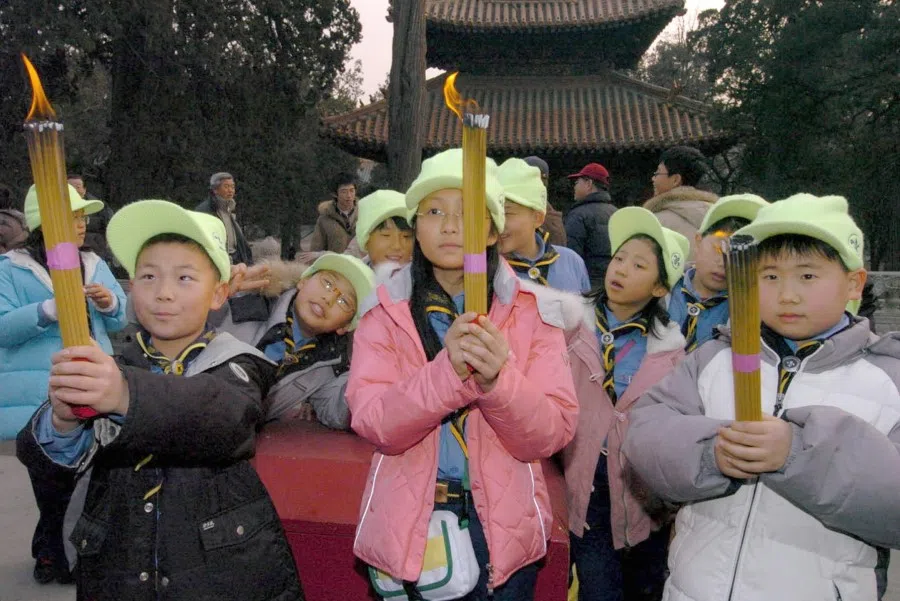
Confucian thought is marked by inclusiveness. Unlike the monotheistic faiths, Confucian thought as a set of secular beliefs can accommodate different strands better. Believing in Confucian thought poses no obstacle to any religious faith, nor does religious faith hinder the Confucian convictions. Because of its exclusivity, monotheism is not conducive to the absolute realisation of the freedom of faith. Conversely, Confucian thought is free from such a shortcoming precisely due to its inclusiveness.
Confucian thought is marked by secularity, and is a faith that guides daily life. Since the Confucian creed "does not discuss prodigies, prowess, lawlessness or the supernatural", it is less likely to develop into extremism and fundamentalism. Furthermore, because of its secularity, this creed also does not conflict with the dialectical (and historical) materialistic worldview, nor does it run counter to the spirit of modern science.
Confucian thought is marked by a people-based inclination. It has been said that "the benevolent man loves others" and that "the people are the root of a country; the country is tranquil when the root is firm". It has also been said that "heaven hears and sees as the people hear and see" and "what the people desire, heaven will be found to give effect to". Moreover, "the people are the most important element in a nation; the spirits of the land and grain are the next; the sovereign himself is the lightest". These ideas are logically in concordance with modern society's respect for human rights and democracy.
Confucian thought is marked by critical thinking. The Confucian creed says nay to following the majority blindly, as much as to deviant-minded smooth-talkers and the "Mister Nice Guy" who would flow with the general impropriety. It believes in remonstration, "not yielding the performance of virtue even to one's teacher", that "remonstrance is required where there is unrighteous conduct", and that "the gentleman must argue (for what is right)". At the same time, Confucian thought also maintains that one should have the courage to stand by his or her personal view - or, as it has been said, "If, upon self-examination, I find that I am upright, I will go forward against even a thousand or a myriad men."
Confucian thought is marked by innovativeness and an impetus to keep advancing with the times. Innovativeness is but an extension of the logic of critical thinking. It has been said that "if you can one day renew yourself, do so from day to day. Let there be daily renewal". Also, "when change takes place in the proper way, occasion for repentance disappears; heaven and earth undergo their changes, and the four seasons complete their functions. The changing of the mandate of Heaven, as performed by the kings Tang and Wu, came about in accordance with the will of Heaven and in response to the wishes of men". Confucian thought values self-reflection, as well as transformations and reforms that unfold with the necessities of the times.
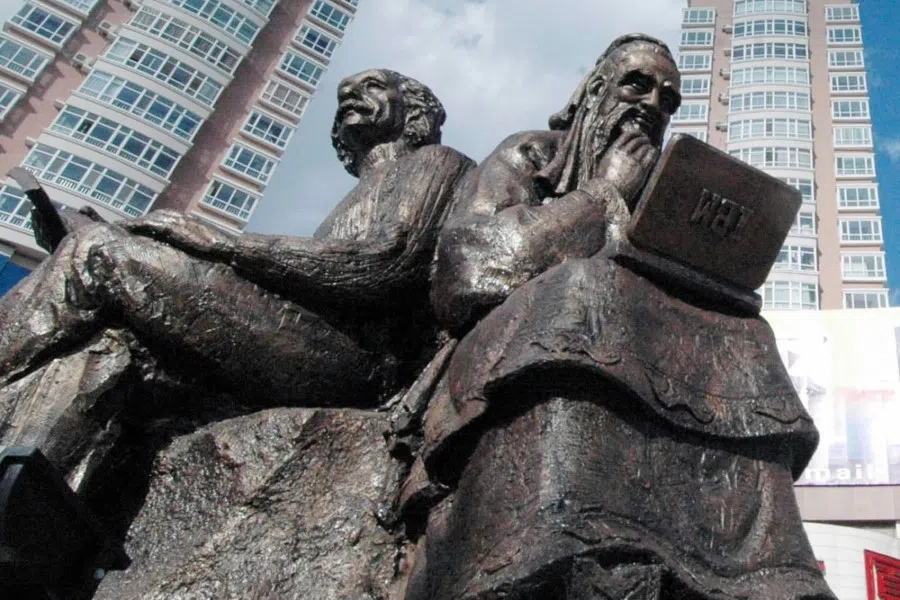
In addition, Confucian thought emphasises a sense of mission. It strongly believes in moral fortitude, the insistence on ethical conduct, and personal cultivation.
The characteristics outlined above lend Confucian thought the potential to adapt to modern society through cultural revival, and to spread across a wider sphere. Should Confucian thought and its creed be revived successfully - on the national level - it could upgrade China's soft power and cultural influence, enabling the country to become the centre of East Asia once again, laying a cultural foundation for the expansion of its global clout. Should a suitable pathway be found for the development of our cultural industries, we would also be looking at the creation of tremendous economic value. On the social level, this can help to prevent corruption and facilitate reforms. On a personal level, Confucian thought and its creed play an important, active role towards "transforming one's temperament,'' which can channel off undesirable psychological conditions.
Nevertheless, the revival of Confucianism is not a panacea for all the problems in China today. Although a revival of Confucianism is likely to boost China's soft power, it cannot guarantee China with first-class soft power without deep and wide political reform and booming cultural industries. Revival of Confucianism is no substitute for these two essential factors of soft power.
Needless to say, the path to achieving these ends is a tough one that will stretch over a lengthy period. The cultural revival it entails requires the long-term efforts of countless scholars. As opined in Deng Lou Fu 《登楼赋》 by writer Wang Can and The Doctrine of the Mean 《中庸》, believed to be written by Zisi, Confucius' grandson, "Sinuous and long is the road ahead", yet "is it not simply sincerity which marks the superior man?"
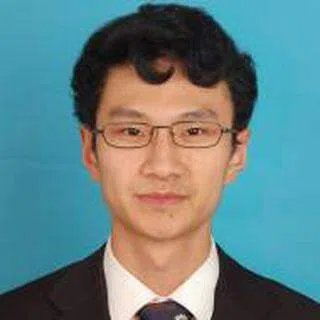

![[Big read] When the Arctic opens, what happens to Singapore?](https://cassette.sphdigital.com.sg/image/thinkchina/da65edebca34645c711c55e83e9877109b3c53847ebb1305573974651df1d13a)


![[Video] George Yeo: America’s deep pain — and why China won’t colonise](https://cassette.sphdigital.com.sg/image/thinkchina/15083e45d96c12390bdea6af2daf19fd9fcd875aa44a0f92796f34e3dad561cc)